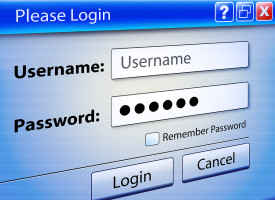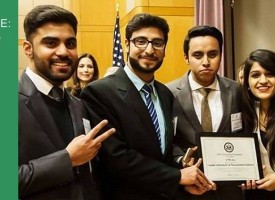Cheating – a simple word used in so many contexts. Yet, we most commonly associate it with tests; maybe because that’s a kind of cheating we all are familiar with. And perhaps that’s where other forms stem from: a tiny fist closed around a crib sheet later clutching a wad of cold hard cash. Habits are formed young, after all.
We all have had a brief flirtation with cheating at some point in our lives. Who really hesitates when the opportunity presents itself, anyway? In school, we call it “teamwork”; in life, “a slight advantage”. In either case, nobody’s above it.
We, as a Nation, have started to think it’s perfectly alright to employ unfair means to achieve anything. And where exactly did we get that incorrect notion from? That’s right, our schools; the same institutes we get enrolled in to be groomed and made into law-abiding citizens.
There are so many different ways to cheat, it’s baffling. Sometimes, I think it’s easier to just study than to make use of all those elaborate cheating techniques. If you are going to spend 3 hours scribbling microscopic notes, cutting pages out of books and hiding them up your sleeves or under your belt, why not just open a textbook and read?
Before you ever consider cheating in an examination, just remember that you should always have confidence in your own intellect; and in case you’re really clueless, your intuition. There’s nothing more depressing in life than choosing the right option on a MCQ and ending up changing it because of someone else. And don’t even get me started on how disastrous mistaking someone’s whispered option “B” for a “D” can be.
I have actually heard of a Matric examiner who asked the principal of a center to buy him a fridge in return for letting all the students in the hall cheat. And on a smaller but equally despicable scale is the practice of turning a blind eye and deaf ear to any unethical practices in the hall when fed a plate of Biryani in advance. Even in the International standard examinations held recently, there were actually instances of some sympathetic examiners helping out (I guess I’m the only one who always gets stuck with the cruel ones).
Though I don’t condone the practice in any way, I can actually understand why children cheat on tests and in examinations. What I don’t get is teachers joining in. If you have ever participated in an Inter- school or college competition, you’ll know exactly what I’m talking about. From Math Olympiads to Environmental Essay Competitions, they stop at absolutely nothing. In fact, after disclosing the answers, they also tell their entrants how to spell the individual words! Since when has the image and reputation of an institution become more important than a child’s integrity and developing intellect? And besides, I can’t think of anything that’s more frustrating than an examiner conveying your answers to another candidate.
And then there are the teachers trying to make themselves popular with students by “helping” in exams. Imagine how surprised the parents of a 10th grader were when they were told upon admission in a new school that their son didn’t know even the basics of math. How could that be, they reasoned, when he never got anything less than an A grade in the subject? I’m guessing that’s how they found out why his favorite teacher in the previous school was a favorite. The student will now have to learn a decade’s worth of course at once. And whose fault is that?
Sadly for some, cheating on a college or university level isn’t as easy- or cheap- as it is in schools. But if you are willing to part with a few multiples of 10,000 Rs, rest assured that even if they can’t exactly help you in the exam hall, you will definitely be compensated when the result is announced. That is, if they don’t hand over the question paper to you beforehand.
We all know someone who’s a total pro at cheating and we might even have envied him that at some point. But remember, by cheating, you’re just setting yourself up for embarrassment as you’ll know nothing when questioned about the subject you supposedly aced recently. And try putting yourself in others’ shoes too: how would you feel, knowing someone has an undue advantage over you?
The bottom line: Cheating is pretty much useless in the long run. You might end up with an A+ in a subject you were flunking otherwise, but 3 months down the road, the exam won’t even matter. And every time you attempt to sneak a peak at your neighbor’s paper, you’re risking your whole academic career; and more importantly, your self-respect.








Gud effort gal…!! Keep it upp!
thanx for writing some good analytic notes.thanx again and again.
Good job, wonderfully written.
Impressive!!